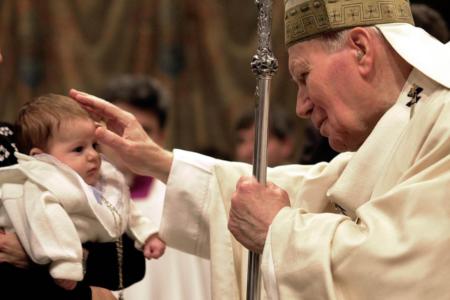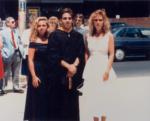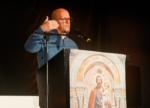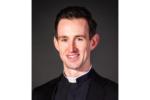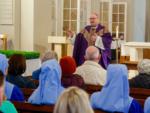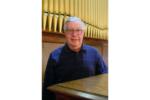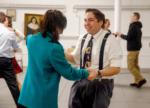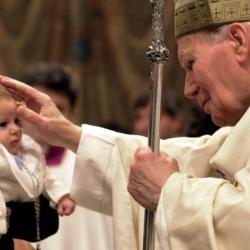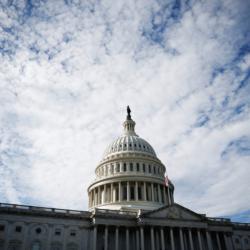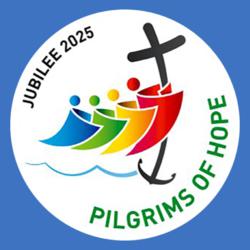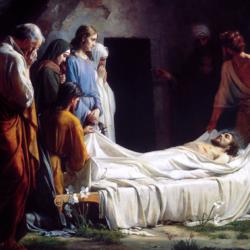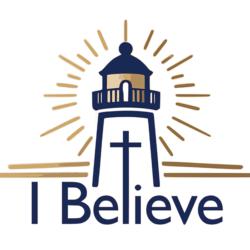Pandemic experience inspires Boston Cathedral Singers' first album
BOSTON -- While the coronavirus pandemic prevented many types of artistic and community activities, it also bore unexpected blessings as people found creative ways to adapt and continue their work. This was the case for Richard J. Clark and the Boston Cathedral Singers, who recently released their first album, "From the Bell Tower," named for the space that served as their "artistic refuge" during the pandemic.
"From the Bell Tower" is a collection of sacred music recorded under the direction of Clark, an acclaimed composer and the director of music at the Cathedral of the Holy Cross. The singers are the section leaders for the archdiocesan choir that Clark leads: Grammy-winning soprano Barbara Hill, mezzo-soprano Jaime Korkos, tenor Michael Gonzalez, and baritone Taras Leschishin, a Boston Pops soloist and international guest conductor.
The group recorded the album's songs from 2020 to 2021, during the months when singing in church was either not allowed or severely limited due to coronavirus regulations. The album is named after their recording space, the south tower of the Cathedral of the Holy Cross, where the acoustics allowed them to hear each other well even when they remained masked and distanced.
"The acoustics kind of wrapped around you like a warm hug, and felt like you were all singing next to each other," Clark said.
Hill, the group's soprano, said that discovering the tower's acoustic properties was "such a balm."
"It meant that the four of us singers, who'd frequently been solo cantoring, or recording alone at home for outside projects, could come together, masked and distanced, but hear each other as if we were standing next to each other. Being able to feel the sound of your colleagues around you, follow the shapes coming from our director, hear our communal breaths, and see each others' eyes brought us back to the joy that we find in ensemble singing. I am positive our listeners can feel it, too," she said.
The pandemic challenged Clark and the singers in their musical activities. Even when churches reopened and public Masses resumed on Pentecost 2020, regulations limited singing to a single cantor, preventing choral and congregational music. But Clark kept looking for ways to adapt to the unusual circumstances.
"You have one singer, that doesn't mean you're limited, necessarily, you're just going to operate differently. And same thing with no congregational singing. We had unthinkable restrictions placed upon us, that no one had ever thought we would ever have to deal with, but in doing so you have to be creative, and still create beauty for the Mass, for prayer, and for the liturgy," Clark said in a Nov. 4 interview.
Clark said he kept "a very close eye" on different studies and methodologies, hoping to find a way to get at least four singers together.
"I was trying to be visible and vocal about how to continue doing music safely," he said.
In the fall of 2020, they were able to have four singers wearing masks perform for the celebration of the feast of Christ the King. Clark said it was "kind of a big deal to be able to actually do some choral music."
"They're four incredible singers, so you can actually do a lot. And so you adapt, each step along the way," he said.
He explained that the section leaders, who are all "highly sought-after professionals," are normally involved in many different projects.
"They're all very busy. And when that was all gone, this became an artistic refuge," Clark said.
He said they never planned to record a whole album. He merely suggested recording a song following a Sunday Mass in Advent 2020, after they had been singing together for a few weeks. They continued recording a song each week, sometimes learning a piece that day, singing it for the Mass, and then recording it afterward.
After some time, Clark realized they had accumulated enough pieces to compile an album, which they had digitally remastered by Paul Umbach.
Clark noted that there was very little outside noise during the early recording sessions because there was not much traffic on Washington Street during those early months of the pandemic.
"In a way, it's kind of a time capsule of that period," he said.
He said the four singers were "sort of like four pieces of a puzzle that fit well together."
"When you're singing with just one person on a part, it changes the approach of it. So in that regard there's a unique sound to this group. And I think the reason we had a lot of fun doing it (is) there's a very good chemistry, musically and personally, with these four singers," he said.
Leschishin, the group's baritone, said it was "a great delight for us" to find the bell tower, and that he is "proud to be a part of this sacred project that will lift one's heart and mind to God."
"Each of us brings our unique gifts and perspective to fully realize the broad range of music from the past and present," he said.
The album includes four Eucharistic motets composed by Clark, who was inspired by the Year of the Eucharist and his own experience when public Masses were suspended.
While most people were unable to attend Mass and receive Communion, Clark helped to livestream daily Mass at the cathedral, serving as sacristan, cameraman, and cantor. This meant he was able to receive Communion, something many Catholic faithful sorely missed. He and other musicians in similar situations felt fortunate to be in the presence of the Eucharist at a time when most of the faithful could not.
"I think for everybody there was a new layer of appreciation," Clark said.
He said the Eucharistic motets were also inspired by the four singers as he worked with them.
Leschishin praised Clark's direction, which "makes it simple for us to bring our best effort vocally, musically, and spiritually."
Gonzalez, the group's tenor, said he hopes those who hear the album will "experience what so many were starving for: peace."
The album "From the Bell Tower" is available on iTunes, Pandora, Spotify, and all digital formats.
